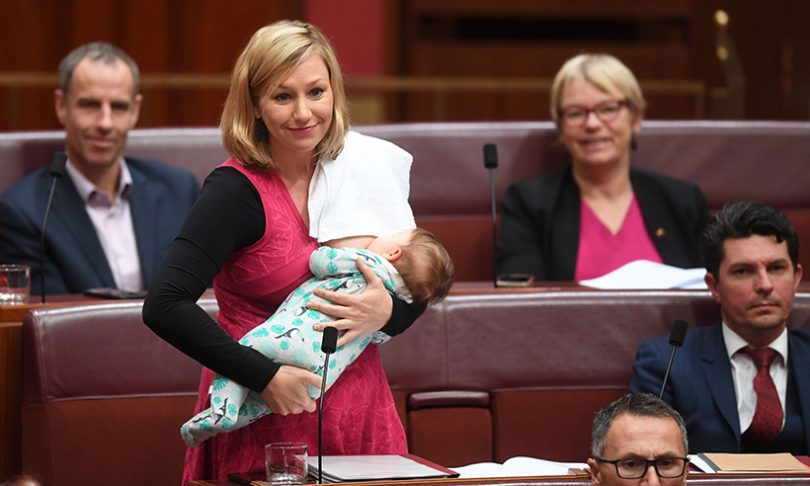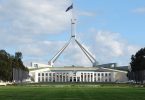Last week Greens Senator Larissa Waters was removed from the Senate because she held a previously undiscovered Canadian citizenship.
It’s a constitutional loophole has touched all corners of Australian politics in recent weeks. Greens Deputy Leader Scott Ludlum was forced out of the chamber due to Section 44 of the Australian Constitution. Liberal Senator Matt Canavan, One Nation’s Malcolm Roberts have also been embroiled.
Just two months ago Larissa Waters was a rising star of the Australian Greens. She made headlines in May for becoming the first politician to breastfeed in the Senate chamber.
“We need more women and parents in Parliament. And we need more family-friendly and flexible workplaces, and affordable childcare, for everyone,” she said at the time.
But Waters was born and spent the first year of her life in Canada. At 11 months old she, and her Australian parents, left the country for Australia and never returned. Four decades later, despite never obtaining a Canadian passport, this accident of birth is what would ultimately seal Waters political fate.
Section 44 says a person cannot be elected to Parliament if they are “under any acknowledgement of allegiance, obedience, or adherence to a foreign power, or is a subject or a citizen or entitled to the rights or privileges of a subject or citizen of a foreign power”. This means people with dual citizenship can’t stand, or hold, federal office.
Over 25% of Australians were born overseas, many of which in the time since have gained Australian citizenship through residency. The existence of Section 44 is locking millions of Australians out of political representation, requirement of sole citizenship restricts people from participating in public life.
Abena Dove is one such person. The 22 year old was born in the UK and currently serves as the President of the RMIT University Student Union (RUSU), the university’s peak representative body for all students, with hopes to enter national politics in the future.
Despite the inconvenience the rule may cause for her Dove agrees its existence should still be respected.
“I hate the rule because the UK and Canada don’t have it both countries with young migrant populations and it’s frustrating. That being said rules should be followed when they’re in place.”
Twenty three members of Federal Parliament were born overseas with many yet to prove they’ve cut ties with their country of birth, an unprecedented shake up in federal politics may soon be unavoidable.Untitled design







